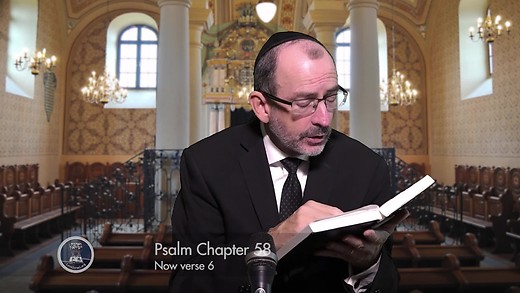

This is a very poetic Psalm from a couple different perspective. What I mean by that is simply that we
see great symbolism in the language that is chosen by the author. And the author here is, of
course, King David. So look at what it says, And there's an inscription. So we're going to be off
one verse, because my first verse in the Hebrew texts, begins this way, to the chief musician or
the choir director. And then we have two words, the phrase in Hebrew, which means if we
translate it, do not destroy. Now, that's interesting, because we see something, do not destroy,
but David is going to pray for destruction by means of God's judgment very quickly. And what
we can glean from that is when we look at the rabbinical commentators, they point out this do
not destroy meaning, do not allow them to destroy me. David is at a point. And this is important
that we see this, that he feels it's either them or him that his enemies have come to the point
where they want to destroy him.
see great symbolism in the language that is chosen by the author. And the author here is, of
course, King David. So look at what it says, And there's an inscription. So we're going to be off
one verse, because my first verse in the Hebrew texts, begins this way, to the chief musician or
the choir director. And then we have two words, the phrase in Hebrew, which means if we
translate it, do not destroy. Now, that's interesting, because we see something, do not destroy,
but David is going to pray for destruction by means of God's judgment very quickly. And what
we can glean from that is when we look at the rabbinical commentators, they point out this do
not destroy meaning, do not allow them to destroy me. David is at a point. And this is important
that we see this, that he feels it's either them or him that his enemies have come to the point
where they want to destroy him.
Activity